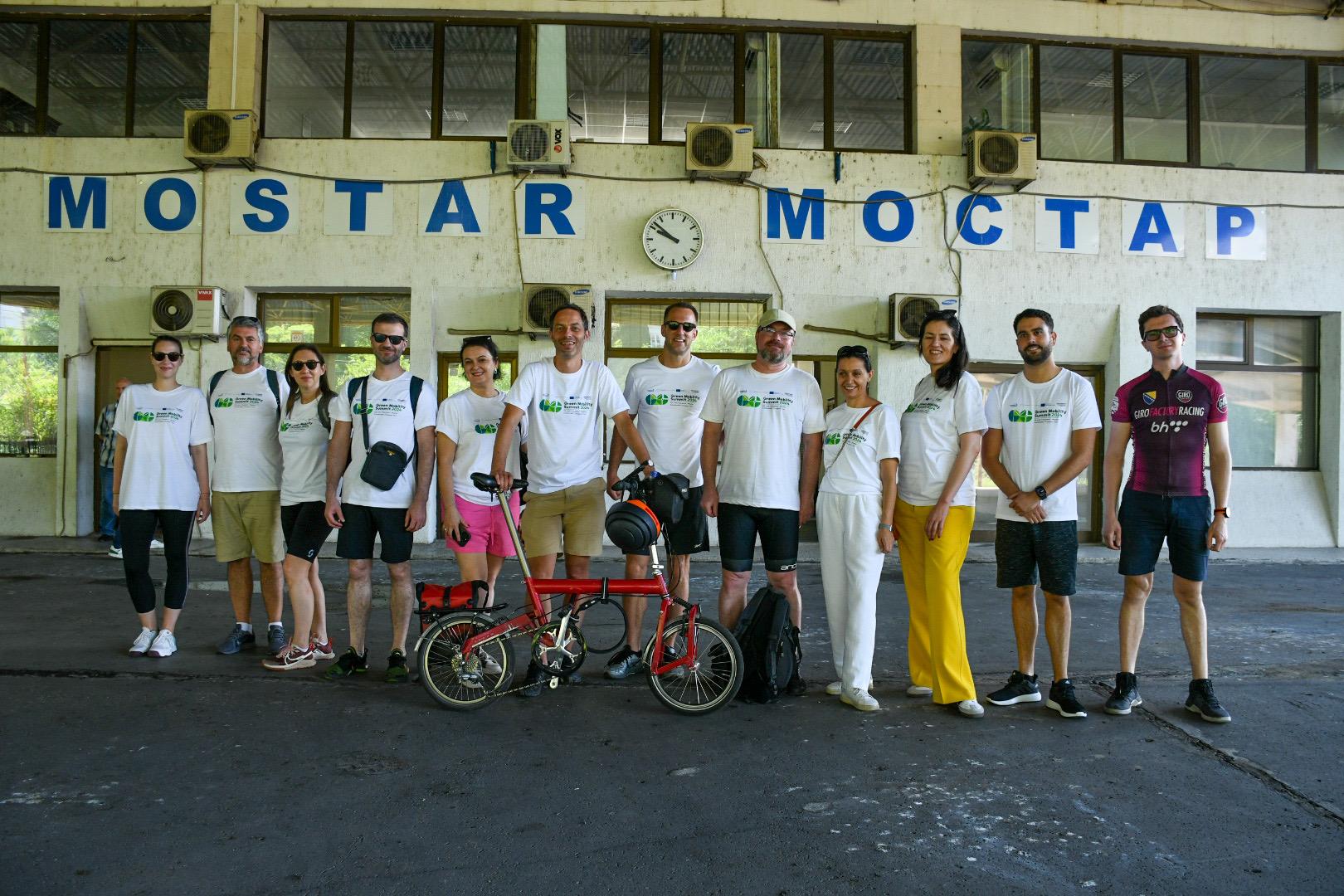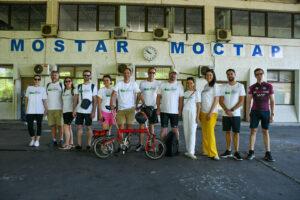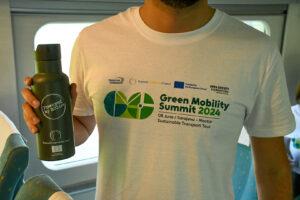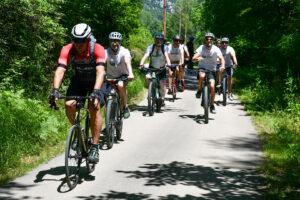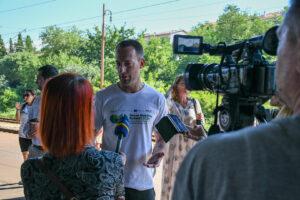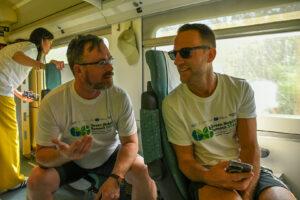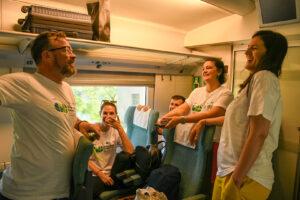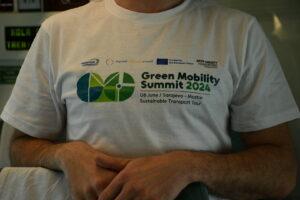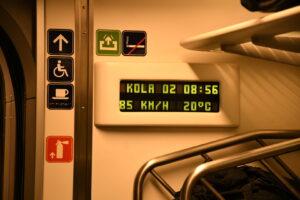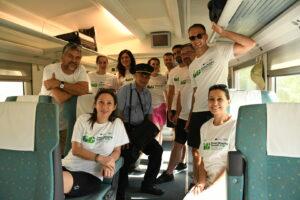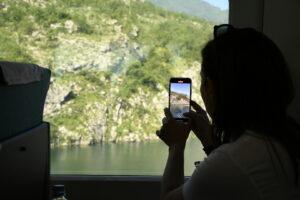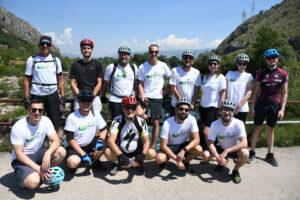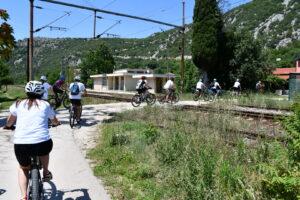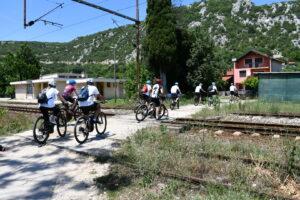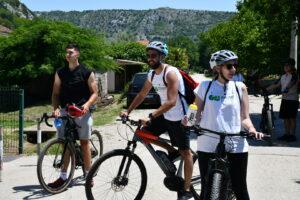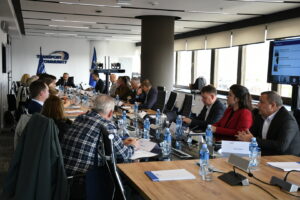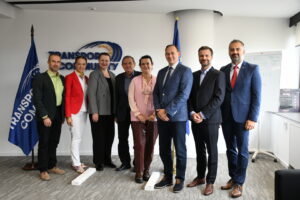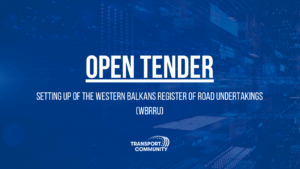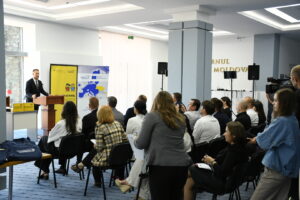SARAJEVO/MOSTAR – As part of the Green Mobility Summit, the Sustainable Transport Tour, an exciting and eco-friendly adventure through Bosnia and Herzegovina, concluded successfully today. Organised by the TCT Secretariat and supported by the Railways of Federation of Bosnia and Herzegovina, Regional Cooperation Council (RCC), and Open Society Foundation, the tour underlined the importance of sustainable travel and regional cooperation.
“First and foremost, we would like to thank the Transport Community for publicly promoting the railway route Sarajevo–Mostar, which has been recognised as one of the most beautiful journeys in Europe. I am confident that this recognition will surely encourage an even greater number of passengers to use trains for their travels. Passenger and freight railway transport is the most environmentally friendly form of transport as it does not pollute the environment, acts socially responsibly towards the community, saves our time, and ensures exceptional travel comfort. In the coming period, following the trends of the European Union outlined in the European Green Deal, railways in our country will also become the backbone of a sustainable transportation system, with an increasing tendency to transport cargo that is currently transported by road to be transported by rail. We have a lot of work ahead of us related to improving railway infrastructure, with the goal of making railways the lifeblood of our economy,” Mr Enis Džafić, General Manager of Railways of Federation of Bosnia and Herzegovina pointed out.
In the region with the lowest air quality in Europe, where 30,000 lives are lost every year as a direct consequence of excessive air pollution, clean transportation is not a commodity but a must. According to our Balkan Barometer, 57% of Western Balkan citizens consider air-pollution as their greatest environmental concern; 61% are willing to put in an effort to improve the environment; while 32% are willing to choose a more environment friendly way of travelling – walk, bicycle, public transport, electric car, etc. Every action counts. The Green Agenda for the Western Balkans, which is being coordinated by the RCC is a mean to the green transition of our region if we want to sustain and enhance our life quality but also to leave a legacy of sustainable development for generations to come,” RCC Secretary General, Ms Majlinda Bregu, underlined.
“Adopting green mobility in the Western Balkans is essential for decarbonization and reducing greenhouse gas emissions. However, this requires a holistic approach, including the decarbonization of electricity production in our region. Integrating the Western Balkans into the EU Emissions Trading System (ETS) is a crucial step towards a viable energy transformation and sustainable transport,” Mr Miodrag Milosavljević, Deputy Director of the Open Society Foundations Western Balkans said.
“The Sustainable Transport Tour showcase Transport Community’s dedication to making the transport more sustainable, greener, and healthier, highlighting the importance of railways and cycling in building more environmentally friendly societies. By investing and modernising railways, and developing and maintaining safe, accessible, and efficient cycling infrastructure, integrating cycling into urban planning, and implementing safety measures and education programs, we aim to create a comprehensive network that enhances multimodal transportation systems,” Mr Matej Zakonjšek, Transport Community Permanent Secretariat Director noted.
The journey began early in the morning at the Sarajevo Train Station, where participants departed towards Mostar, taking one of Europe’s most picturesque railways lines – Sarajevo-Mostar. Upon reaching Mostar, participants were welcomed by the authorities of the City of Mostar, announcing the main segment of the journey – an e-bike ride through some of the region’s most scenic routes, including the visits to the Old Town of Počitelj, Čapljina, and Mogorjelo archaeological site.
Covering approximately 70 km at a comfortable pace, the bike ride was designed to promote green mobility and demonstrate the feasibility of sustainable travel options.
The importance of green mobility cannot be overstated as the key sources of pollution in the Western Balkans are the energy and transport sectors. As cities and regions strive to reduce their carbon footprint, events like the Sustainable Transport Tour showcase the viability and benefits of eco-friendly transportation. By opting for trains and e-bikes, participants not only reduced emissions but also promoted a healthier, more active lifestyle.
The success of this tour was made possible by the generous support of our sponsors. We extend our gratitude to the Railways of Federation of Bosnia and Herzegovina for providing the train tickets from Sarajevo to Mostar. We also thank the Open Society Foundation and the Regional Cooperation Council for their support of the bike ride from Mostar to Čapljina and back. A special thank you goes to the Giro di Sarajevo crew for their invaluable assistance in organising the bike ride.

